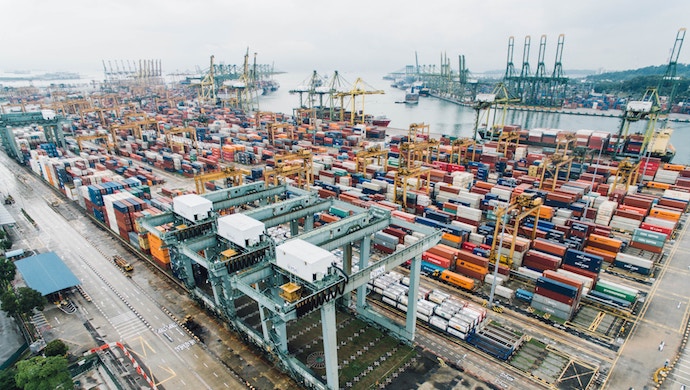Selling internationally has its perks, but depending on your product, there are also regulations to adhere to

In an interview last year, Piruze Sabuncu, the Head of South East Asia and Hong Kong at Stripe revealed that nearly 60 percent of startups in countries like Singapore sell internationally.
Regardless of where your business is located, selling internationally is extremely lucrative. The size of the global market is just one aspect of it. In most countries, selling internationally also gives you a number of tax perks since you bring foreign currency into the country.
Depending on where you are located, there are a number of regulations and compliances you must adhere to while exporting your product or services. Let us take a look at a few.
1. Export license
Most countries, including the market friendly ones like Singapore, require an export permit for businesses that want to export locally manufactured or GST-paid goods. The procedure and the forms that you need to submit can vary depending on what you want to export.
For instance, in Malaysia, you only have to produce a sales invoice if you are exporting cement (in addition to other forms that are required for all exporters). But if you export roofing materials, you also have to produce a material sample.
Regulations can get tougher for certain categories. You may be asked to produce letters of approval from the government office for certain categories like mining while in Vietnam, you are prohibited from exporting petroleum gas. By the way, Vietnam does not require a company to have any sort of license for their import/export business, although a foreign investor might be required to register with the Department of Planning and Investment.
It is important to hire a lawyer with specialty in this area to understand your compliance requirements before you move forward.
Also read: Taxis, traffic, tech, and how “cruising” shapes mobility in the Philippines
2. Regulations related to destination
Exporters are generally drawn towards the developed countries where purchasing power is high and the margins are too. But a number of these countries have stringent regulations that you must adhere to. For instance, the European Union recently brought their new privacy law GDPR into force. This law is applicable to any business that handles data pertaining to the citizens of the European Union.
More specifically, you are required to comply with the law even if you have a local partner who handles all your business in the EU country. You may be in breach of their law if you have unattended hard copies of personal data lying in your printer or an unsecured recycle bin. It is important that you hire a GDPR consultant to help you with compliance even if EU forms only a small chunk of your overall business.
There are similar issues to tackle while dealing with every other country. If you are a business that imports a significant number of components before processing them and exporting them to countries like the United States, take care of any transshipping violations that you may be committing. Transshipping is the process of routing an export from one country to the another with the help of a middleman country. This is usually done to bypass trade barriers between the source and the destination and the middleman could inadvertently fall victim due to these issues.
3. Tax
Many countries offer tax benefits to exporters to support their business. But there are a bunch of different criteria to fulfill depending on what you export and where you are located. Singapore exporters, for instance, are classified as direct and indirect exporters. Direct exporters (businesses that have custody of the product and control the export) are subject to zero-rated tax provided they provide all supporting documents within sixty days of supply. Indirect exporters however are required to treat the transaction as a local sale and charge GST accordingly. Philippine laws are similar. However, they charge a 20% tax on the export of logs.
Although most countries encourage exporters with tax benefits, it is important to note that a lot of these benefits are provided in the form of tax refunds. In Thailand, for instance, registered exporters receive their refund within 60 days while ‘good exporters’ receive it within 45 days. This window can however be much longer for a new exporter who is subjected to an audit.
Lengthy refund periods can drain your cash flow and so it important to make sure that your business has sufficient working capital to tide over these challenges.
Selling internationally has its perks. However, depending on your product, there are also regulations to adhere to. Is there an aspect of export business that we did not cover above? Share your thoughts in the comments.
—-
Echelon Asia Summit 2018 is e27’s flagship platform that brings together startups, investors, corporates, governments, tech ecosystem players and customers.
Register for your conference passes today.
e27 publishes relevant guest contributions from the community. Share your honest opinions and expert knowledge by submitting your content here.
Photo by chuttersnap on Unsplash
The post Does your startup sell internationally? Here are some regulatory considerations appeared first on e27.